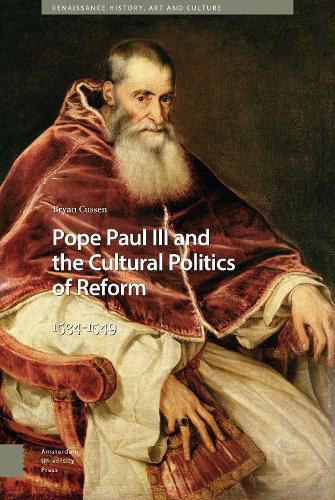Readings Newsletter
Become a Readings Member to make your shopping experience even easier.
Sign in or sign up for free!
You’re not far away from qualifying for FREE standard shipping within Australia
You’ve qualified for FREE standard shipping within Australia
The cart is loading…






When Paul III was elected in 1534, hopes arose across Christendom that this pope would at last reform and reunite the Church. During his fifteen-year reign, though, Paul’s engagement with reform was complex and contentious. A work of cultural history, this book explores how cultural narratives of honour and tradition, including how honour played out in politics, significantly constrained Pope Paul and his chosen reformers in framing strategies for change. Indeed, the reformers’ programme would have undermined the culture of honour and weakened Rome’s capacity to ward off current threats of invasion. The study makes a provocative case that Paul called the Council of Trent to contain reform rather than promote it. Nevertheless, Paul and the Council did sow seeds of reform that eventually became central to the Counter-Reformation. This book thus sheds new light on a pope whose relationship to reform has long been regarded as an enigma.
$9.00 standard shipping within Australia
FREE standard shipping within Australia for orders over $100.00
Express & International shipping calculated at checkout
When Paul III was elected in 1534, hopes arose across Christendom that this pope would at last reform and reunite the Church. During his fifteen-year reign, though, Paul’s engagement with reform was complex and contentious. A work of cultural history, this book explores how cultural narratives of honour and tradition, including how honour played out in politics, significantly constrained Pope Paul and his chosen reformers in framing strategies for change. Indeed, the reformers’ programme would have undermined the culture of honour and weakened Rome’s capacity to ward off current threats of invasion. The study makes a provocative case that Paul called the Council of Trent to contain reform rather than promote it. Nevertheless, Paul and the Council did sow seeds of reform that eventually became central to the Counter-Reformation. This book thus sheds new light on a pope whose relationship to reform has long been regarded as an enigma.